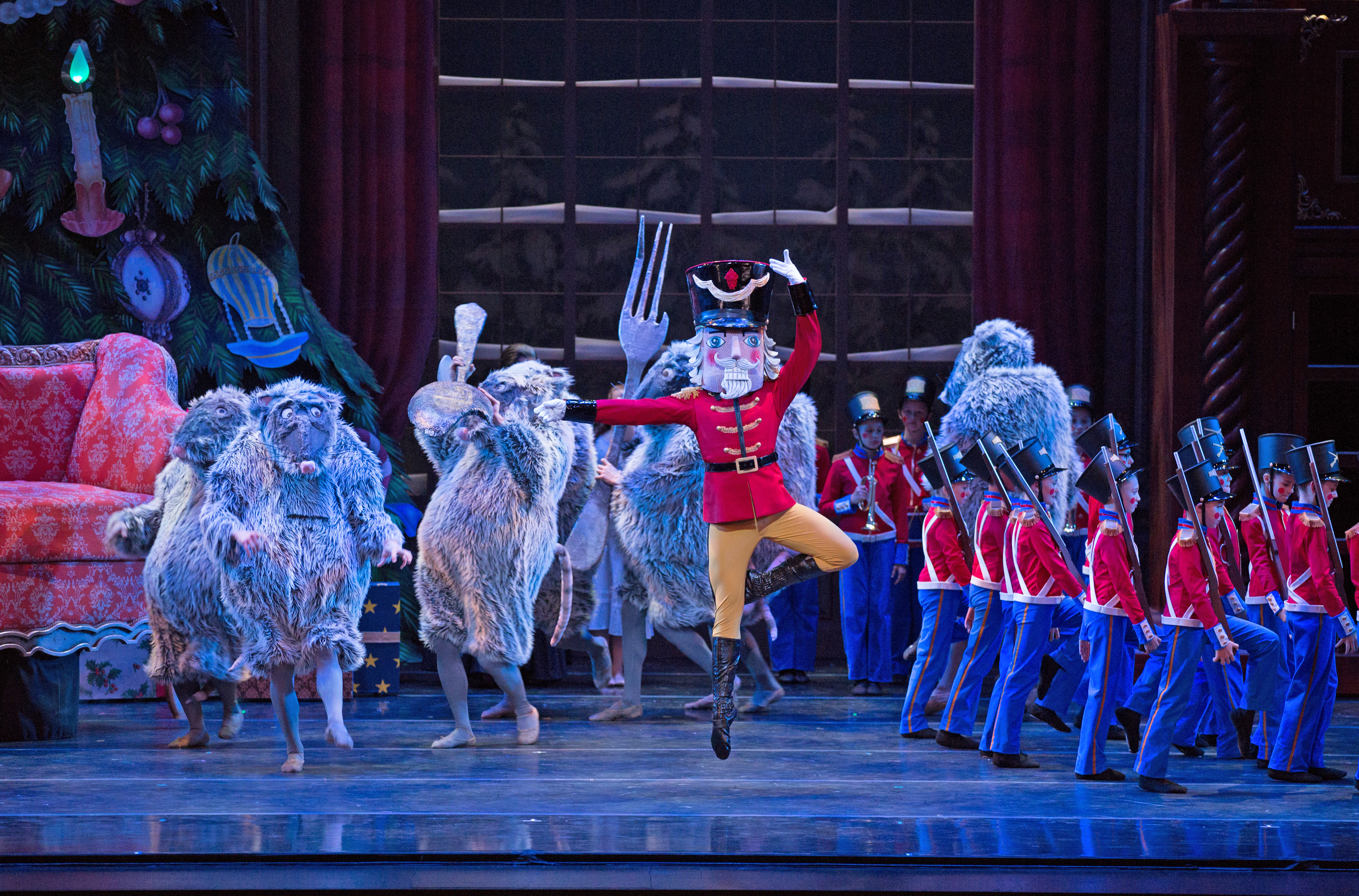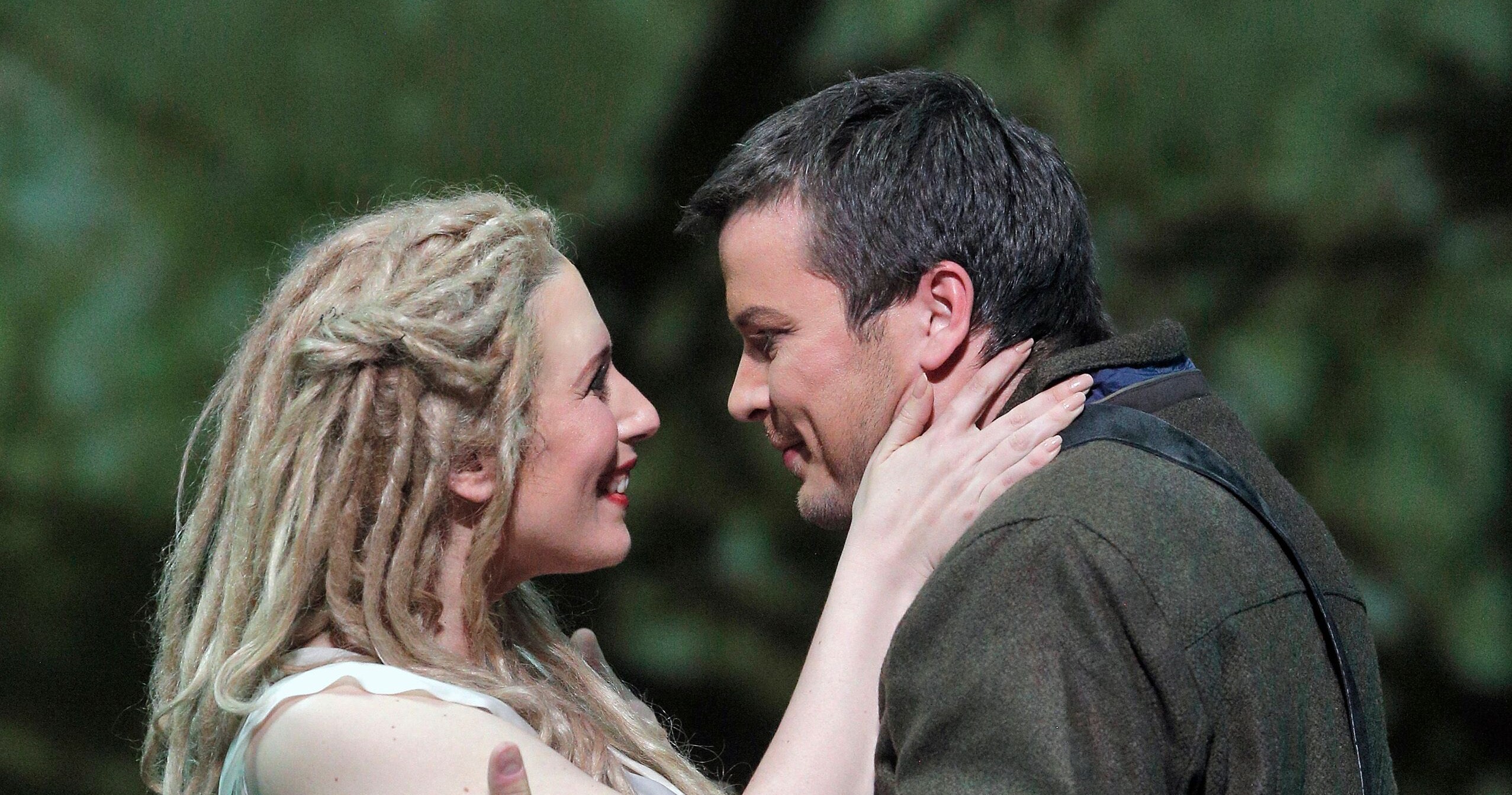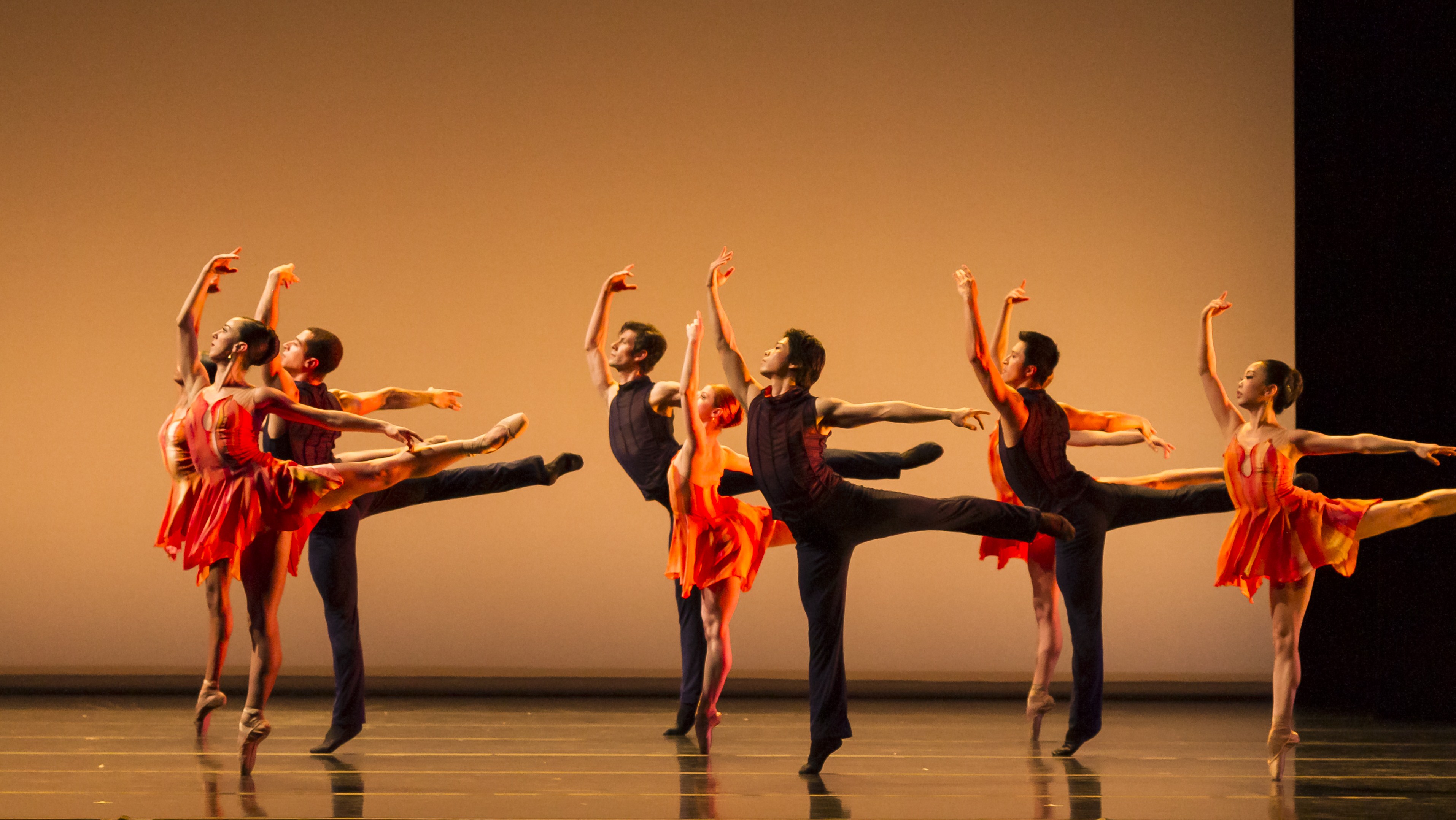IN REVIEW: Lyric Opera takes on comedy of romance, duty and intrigue
Donizetti’s The Daughter of the Regiment is perhaps more sentimental comedy than farce, though the wanton absurdities of its plot invite elements of silliness. The Lyric Opera’s production of the 1840 bel canto classic plays it somewhere in the middle, and the result is an entertaining evening with strong singing and a generous portion of well-grounded comedic action. If I found fewer of director Dorothy Danner’s signature whimsical touches than I have in past productions, the overall vision was sound. The show, which opened February 19th at the Lyric Theatre, runs through February 27th. It is sung in English translation, partly for greater comedic impact but also as tribute to a previous Lyric tradition.
The “daughter” of the title is Marie, a young woman who was found on the battlefield as an infant and raised by an infantry of French soldiers. Now a young woman, she finds love in a Tyrolean peasant, but is taken in by a meddlesome Marquise who wants to arrange a marriage of means. Love prevails finally, but not after some “surprising” (and for comic opera of this period, quite conventional) twists.
The opera began auspiciously, with a pantomime in which the French soldiers—represented in the distance by diminutive puppets—march into camp while the overture plays. The opening chorus gave a hint of what was to come, with dancing soldiers who not only engaged in high-kicks but at times rocked their feet back and forth comically. The male choristers sang with virile warmth and muscle, and seemed genuinely to be having fun onstage throughout the opera. The Lyric stage is of course so shallow that much of the marching had to be in a long oval from left to right, which made us once again yearn for next season’s first Lyric productions on the Kauffman Center’s much deeper stage.
Erhard Rom is known for his representational set designs, and I found them convincing enough: For Act 1 he used large overlapping sheets of what looked like corrugated metal to represent the soldiers’ mountain camp, with more mountains painted behind. The Marquise’s chateau of Act 2 consisted of a large curtain hung with period-looking portraits of noble ancestors, as well as busts on pedestals and lush furniture on which hijinks and intrigue could ensue. The tasteful costumes by Malabar (as coordinated by Mary Traylor, with wigs and at times ironically extreme makeup by Joanne Weaver) were set in appropriate hues, with jovially over-the-top designs for the faded aristocrats and simple uniforms for the troops that looked like something a soldier around 1800 might really wear.
At the center of the singing cast was Nili Riemer (Marie), whose quicksilver soprano negotiated this demanding role with ease. Her sound is cool and pointed, with a vibrato so quick that it often sounds the same as her trills, and with brilliantine color that seldom changes. She was affecting in her lament at the end of Act 2, and her embellishments of Donizetti’s vocal line—inventive but responsible—included comfortable high F’s and G’s. She also played beautifully off John Stephens (Sulpice), whose comedic gifts were a highlight throughout, and whose chemistry with his “daughter” was on the whole more palpable than that between Marie and Tonio. Victor Ryan Robertson (Tonio) was particularly convincing vocally, with a firm, clarion tenor that negotiated the high C’s of his famous “Ah, mes ami” with extroverted ease. His is a natural, open tenor, and he has dramatic instincts to match; he was steadfast in his Act 2 aria, where his ardor fails to win Marie’s hand but seems to affect the Marquise.
Both John Stephens and Joyce Castle were in their comic element, the latter as the imperious yet romantically vulnerable Marquise. The subtle slapstick of Robert Gibby Brand as Hortensius, a speaking role, provided some of the evening’s best laughs—as did an appearance by a local celebrity whose name I’ll leave as a surprise. Benjamin Gulley as a miscellaneous peasant had a few fleeting moments to show off his marvelous, room-filling tenor. The ensembles were well-negotiated on the whole and were often filled with Dorothy’s signature physical comedy. The orchestra under visiting conductor Joseph Walshplayed capably on the whole, straying chiefly during the solo ensembles.
To reach Paul Horsley, performing arts editor, send email to phorsley@sbcglobal.net.
Features

By Paul Horsley David Ludwig knows better than to attach a “back-story” to a piece irrevocably, although he has openly stated that his new Violin Concerto was inspired by his…

By Paul Horsley Each production of The Nutcracker is to some extent a balancing act between spectacle and dance. At best it seamlessly integrates the colors and stagecraft that keep…

By Paul Horsley The Lyric Opera of Kansas City deserves applause for taking on an opera in Czech for the first time in its history, but the opening performance of…






